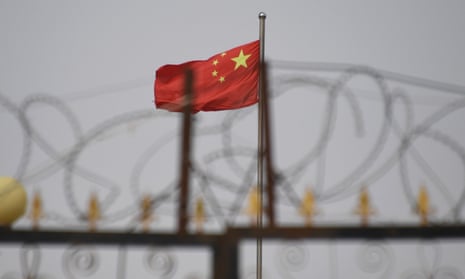More than 20 countries have written to top United Nations human rights officials condemning China’s treatment of Uighur and other minorities in the western Xinjiang region.
UN ambassadors from 22 states – including Australia, Britain, Canada, France, Germany and Japan – co-signed the letter released Wednesday and sent to the Human Rights Council president, Coly Seck, and the High Commissioner for Human Rights, Michelle Bachelet.
China is reportedly holding one million people, mostly ethnic Uighurs, in internment camps in Xinjiang.
Rights groups and former inmates describe them as “concentration camps” where mainly Muslim Uighurs and other minorities are being forcefully assimilated into China’s majority ethnic Han society.
The letter expresses concern “about credible reports of arbitrary detention... as well as widespread surveillance and restrictions, particularly targeting Uighurs and other minorities in Xinjiang.”
It calls on China to stop arbitrary detention and allow “freedom of movement of Uighurs and other Muslim and minority communities in Xinjiang.”
The authors, who include ambassadors from across the EU as well as Switzerland, requested that the letter become an official document of the Human Rights Council, which ends its 41st session in Geneva on Friday.
Diplomats rarely send open letters to the 47-member council to criticise a country’s record, but the move may have been the only available option to spotlight Xinjiang, with China likely having enough support to vote down a formal resolution.
Chinese officials describe the camps as voluntary “vocational education centres” where Turkic-speaking Uighurs receive job training.
Beijing has said the centres are necessary to steer people away from religious extremism, terrorism and separatism.
